For Alexander Shtarkman, professor and chair of Peabody’s Piano Department—and, really, for everyone at Peabody who loves pianos—it’s a dream come true. Last spring, Shtarkman and three fellow Peabody piano aficionados traveled to Hamburg, Germany, to acquire the Conservatory’s first Hamburg Steinway.
Rare in the U.S., these exquisite instruments grace most of the world’s finest concert halls and are generally distinguished from their New York Steinway cousins (same company, same high standards, but significantly different materials used in their production) by a sweeter, cleaner, more intimate tone.
“I cannot explain how excited I am about this,” says Shtarkman, a concert pianist who—like the great composer Sergei Rachmaninoff and Peabody’s own Leon Fleisher were—is a “Steinway Artist,” a title conferred on what the company describes as “the best pianists of his or her time” who perform exclusively on Steinways.
“This is something I have been talking about acquiring for Peabody since I first joined the faculty in 2002,” Shtarkman says. “It’s thrilling to be able to offer our students the opportunity to experience the touch, the tone, the color, the richness and depth these instruments can produce. It’s not that they are better than New York Steinways. They can be equally exquisite. But they are different, and that’s why I think it’s best to have both.”
Plans for the acquisition were first made before COVID-19, when Ci-Ying Sun (BM ’92, MM ’94, Piano) provided philanthropic support both to help fund Peabody’s Breakthrough Curriculum and to purchase a concert grand in honor of her teacher Ellen Mack, who served on the Peabody piano faculty for more than 50 years.“I want her incredible dedication to the school and her students to always be recognized and remembered,” says Sun, who had only $40 when she left her native China to attend Peabody and believes the full scholarship and stipend she was awarded, along with the selfless devotion of teachers such as Mack, made possible all of her subsequent achievements, not only as a concert pianist, but as an international business executive.
“I’m just glad I now have the resources to do this for her,” says Sun, who serves on the Peabody Institute Advisory Board and the Johns HopkinsUniversity Board of Trustees. “And I was very excited to learn the piano would be a Hamburg.”
The pandemic slowed everything down, plus the Hamburg factory has a yearlong waiting list, but in early April 2023, the Peabody team traveled to Germany to select the $225,000, nine-foot-long concert grand. “We have a regular replacement plan for pianos at Peabody, and we now have 330 in inventory, but most of what we buy are studio pianos, so it’s always a very big deal and an exciting time when we commit to acquiring a concert grand,” says Andrew Kipe, assistant dean of performance activities, who accompanied Shtarkman on the pilgrimage along with Professor of Piano Steven Spooner and head piano technician Renee Kelsey.
After an early morning tour and lunch, the team was formally presented with six pianos. “They were all gorgeous,” Kelsey says. “After I made sure there were no glaring issues and everything sounded very much in tune, I just listened and gave guidance on how each piano was sounding from a distance.”
Spooner and Shtarkman repeatedly played a range of selections—fast, slow, loud, soft, pieces that span the entire piano—to test each instrument’s response.
“The difference in tone and touch and overall feel from one piano to the next, all made side by side in the same factory, is fascinating,” Kipe says. “And some of the art in this process is understanding how the piano will ‘open up,’ as we call it, over time.”
Shtarkman says it’s quite a responsibility, predicting how a piano will behave over time and in different settings. And though the team relatively quickly eliminated four of the pianos, it took hours to choose between the final two. “I kept asking if we couldn’t just buy both,” Shtarkman says, laughing.
They finally chose the piano “with the longer sustain, the cleaner sound,” Kelsey says.
“For my taste, for my touch, it felt like the most versatile, the richest and deepest, the most singing, the most colorful,” Shtarkman says. “And to me it seemed the most promising instrument to open up. Instruments need to be ‘played in’ before they show their real beauty.”
The piano’s American odyssey had begun. Carefully packed and shipped via plane to the Bethesda, Maryland, Steinway dealership, it was delivered to Peabody in May, where it spent a few weeks resting in an undisclosed location, adapting to its first Baltimore summer under the ministrations of Kelsey and her staff.
It was then “played in” by faculty in that same secret location before landing in its permanent Peabody home—the Miriam A. Friedberg Concert Hall—where it will be dedicated and introduced this fall to the wider Peabody community in a solo concert performed by Shtarkman. The piano chair spent weeks planning the repertoire, which will not only showcase the piano’s remarkable character and versatility, but culminate in a tribute to Rachmaninoff, his fellow “Steinway artist,” whose 150th birthday is being celebrated worldwide this year.

